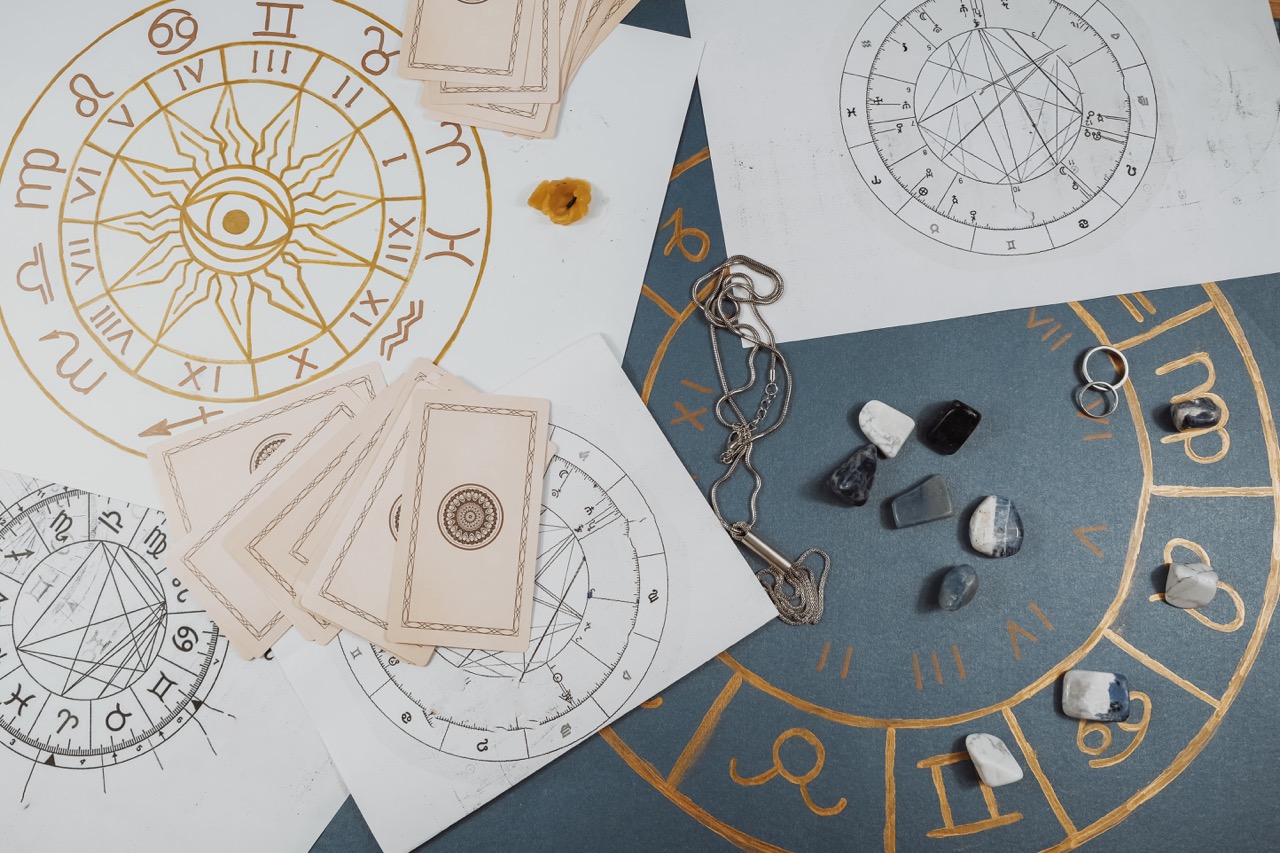In the tapestry of early Christianity, few figures stand as prominently as Basil of Caesarea, a pivotal theologian whose thoughts echoed through the corridors of time. While the church was establishing its theological foundations, the understanding of the cosmos and its influence on human existence was also evolving. This interplay between faith and the celestial bodies invites an exploration of Basil’s cosmic vision, his thoughts on astrology, and how he sought to reconcile these beliefs with the burgeoning landscape of Christian doctrine. In an era when faith and reason often appeared at odds, Basil emerged as a beacon of enlightenment, striving to integrate the divine with the wonders of the universe.
The Celestial Dance: Basil of Caesarea’s Cosmic Vision
Basil of Caesarea viewed the cosmos not merely as a vast expanse of stars and planets, but as a grand symphony orchestrated by the Creator. He believed that every celestial body played a role in the divine plan, contributing to the beauty and order of the universe. This cosmic vision was intertwined with his theological beliefs, suggesting that the heavens could reveal insights into God’s nature and intentions. While many of his contemporaries were preoccupied with earthly matters, Basil looked upward, encouraging others to reflect on the majesty of creation and its implications for humanity’s spiritual journey.
His writings reveal an awe for the celestial dance above, as he often drew parallels between the harmony of the stars and the divine order of the church. Basil likened the movement of heavenly bodies to the harmonious functioning of a well-ordered community, where each individual contributes to the greater good. This analogy served to elevate the significance of both cosmic and ecclesiastical order, urging the faithful to recognize their place within God’s grand design. The stars, for Basil, were not distant and unapproachable; they were integral to understanding the divine narrative of creation.
In this cosmic vision, Basil also found a source of inspiration for moral living. He believed that contemplation of the heavens could instill a sense of humility and reverence in individuals, promoting virtues such as patience, kindness, and love. By contemplating the intricate beauty of the universe, one could foster a deeper relationship with God and cultivate a heart aligned with divine purposes. Thus, Basil’s cosmic vision was not only about understanding the heavens but also about transforming the human soul to reflect the brilliance of creation.
Bridging Faith and Stars: Astrology in Early Christianity
Astrology, the ancient practice of interpreting celestial movements to predict earthly events, held a prominent place in the cultural milieu of early Christianity. During Basil’s time, many people sought guidance from the stars, believing that astrological influences could shape their destinies. The interplay between astrology and faith was complex, as some early Christians grappled with the implications of celestial determinism on divine providence. In this context, Basil’s thoughts on astrology became crucial in navigating these uncharted waters.
While astrology was rooted in ancient traditions, Basil recognized its potential for both enlightenment and deception. He understood that many individuals turned to the stars for comfort and understanding amidst the uncertainties of life. However, he also cautioned against the dangers of placing too much faith in astrological predictions, which could lead to a misunderstanding of God’s sovereignty. In his view, astrology could lead believers away from reliance on divine providence and toward a deterministic worldview that undermined the essence of faith.
Basil’s approach was nuanced; he acknowledged astrology’s historical significance while firmly advocating for a Christian perspective that emphasized the importance of free will and divine grace. He encouraged the faithful to seek wisdom from the Scriptures and the teachings of Christ rather than succumbing to the allure of astrological predictions. Through his teachings, Basil helped to bridge the gap between a fascination with the cosmos and a commitment to a faith that transcended the stars, emphasizing that true understanding came not from the heavens but from a deep relationship with God.
Illuminating the Soul: Basil’s Critique of Astrological Beliefs
Basil of Caesarea’s critique of astrology was rooted in his profound understanding of human dignity and the divine image within all people. He believed that reducing individuals to mere pawns of celestial forces undermined their inherent worth and the transformative power of God’s grace. In his writings, Basil eloquently argued that the influence of the stars should never eclipse the significance of personal agency and moral responsibility. By emphasizing the role of free will, he sought to liberate believers from the perceived shackles of astrological determinism.
Basil’s critique went beyond mere rejection of astrology; he urged believers to cultivate a robust theological framework that anchored their understanding of the universe. He posited that true illumination came from engaging with God’s Word and developing a personal relationship with the Creator. In this light, astrology was not only a misguided pursuit but also a potential distraction from the deeper truths found in faith. Basil encouraged a shift from looking to the stars for guidance to seeking divine wisdom through prayer, contemplation, and the teachings of Christ.
Ultimately, Basil’s challenge to astrological beliefs was an invitation to embrace a more profound sense of identity grounded in faith. By elevating the spiritual over the celestial, he inspired his followers to recognize their value as children of God, called to a life of purpose and meaning. Through his critique, Basil illuminated a path for early Christians, encouraging them to reflect on their place in the cosmos not as mere subjects of the stars, but as co-creators in the divine narrative of love and redemption.
A New Dawn: Integrating Faith, Reason, and the Cosmos
In a time marked by fierce debates over the intersection of faith and reason, Basil of Caesarea emerged as a pioneer of synthesis. He championed the idea that faith and reason were not adversaries but rather complementary paths leading to a deeper understanding of God and the universe. Basil’s theological insights encouraged believers to explore the cosmos with a sense of wonder while grounding their understanding in the teachings of Scripture. This integration of faith and reason opened a new dawn for early Christianity, one that embraced intellectual exploration while remaining anchored in spiritual truth.
Basil’s vision for integrating faith, reason, and the cosmos was profound. He believed that the study of the natural world, including the stars, could enhance one’s understanding of God’s character and the beauty of creation. By inviting believers to engage with the cosmos through reasoned inquiry, he fostered an environment where the exploration of the universe became an act of worship. This holistic approach emphasized that the pursuit of knowledge was not a departure from faith but a means to deepen one’s relationship with the Creator.
As Basil’s ideas spread, they laid the groundwork for future theological developments that would continue to bridge the gap between spirituality and intellectual inquiry. His legacy can be seen in the works of later theologians who sought to harmonize faith with the emerging scientific understandings of the universe. The new dawn he envisioned was one of exploration and discovery, where the stars were not merely distant points of light but reflections of divine creativity, inviting all to join in the cosmic dance of faith, reason, and wonder.
Basil of Caesarea’s exploration of astrology and the cosmos teaches us that the search for meaning is a multifaceted journey. His legacy resonates through the ages, encouraging believers to lift their eyes to the heavens while remaining firmly grounded in the truths of faith. In a world where the allure of celestial determinism can often cloud our understanding of our divine purpose, Basil’s insights illuminate the path of free will and grace. As we navigate our own journeys, we can draw inspiration from Basil’s call to integrate faith, reason, and the mysteries of the cosmos, inviting us to participate in the divine narrative of love, hope, and transformation.




